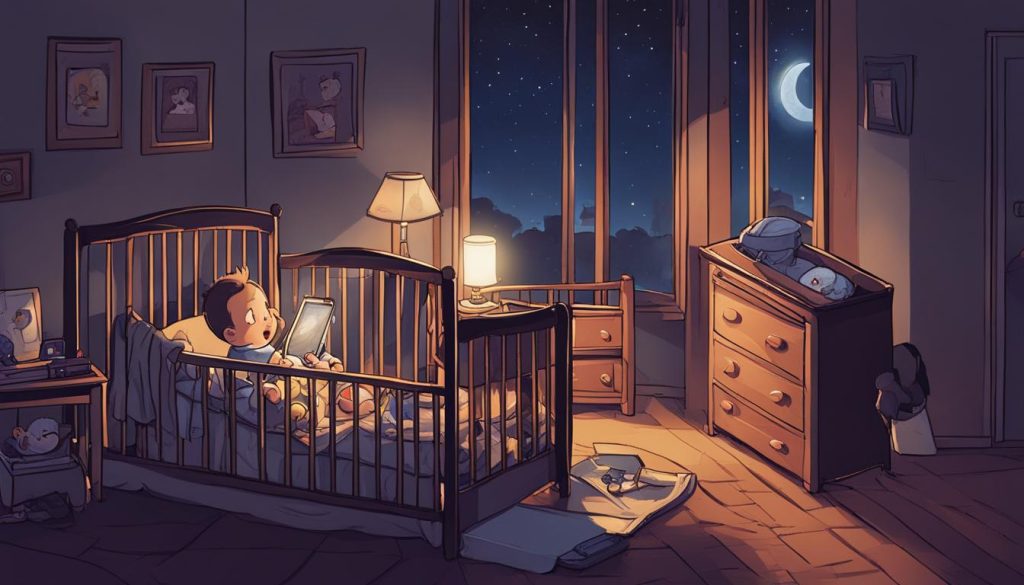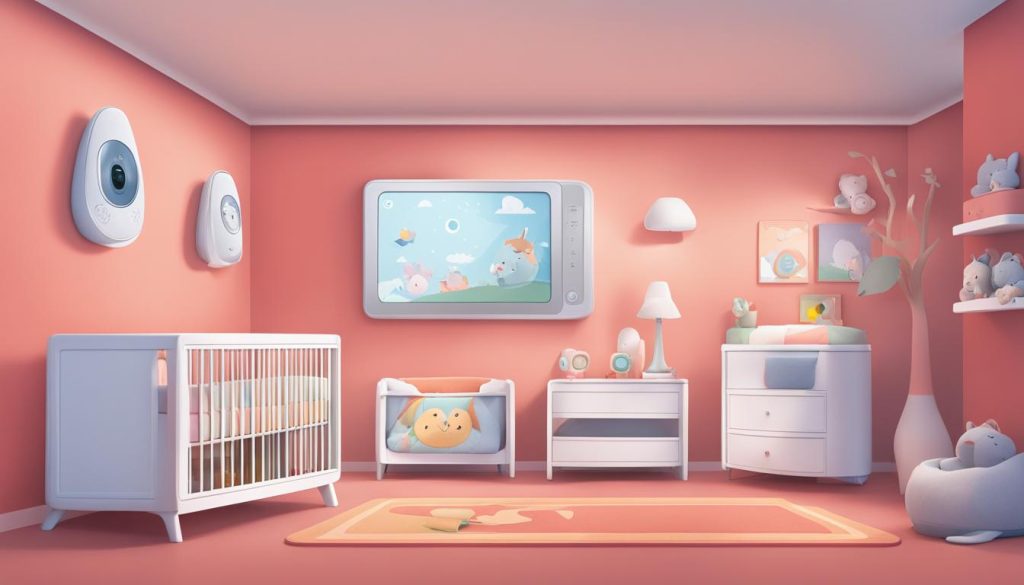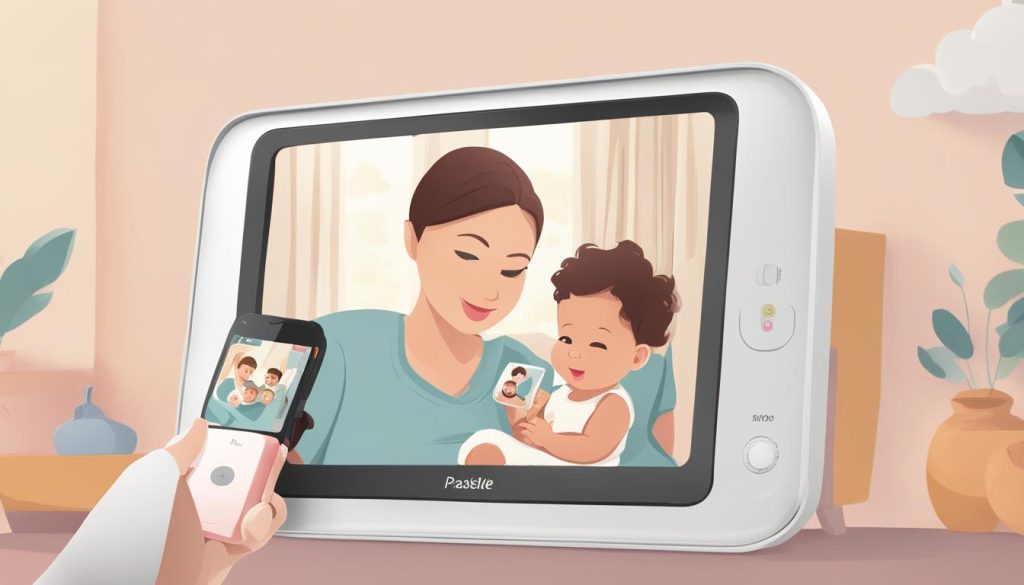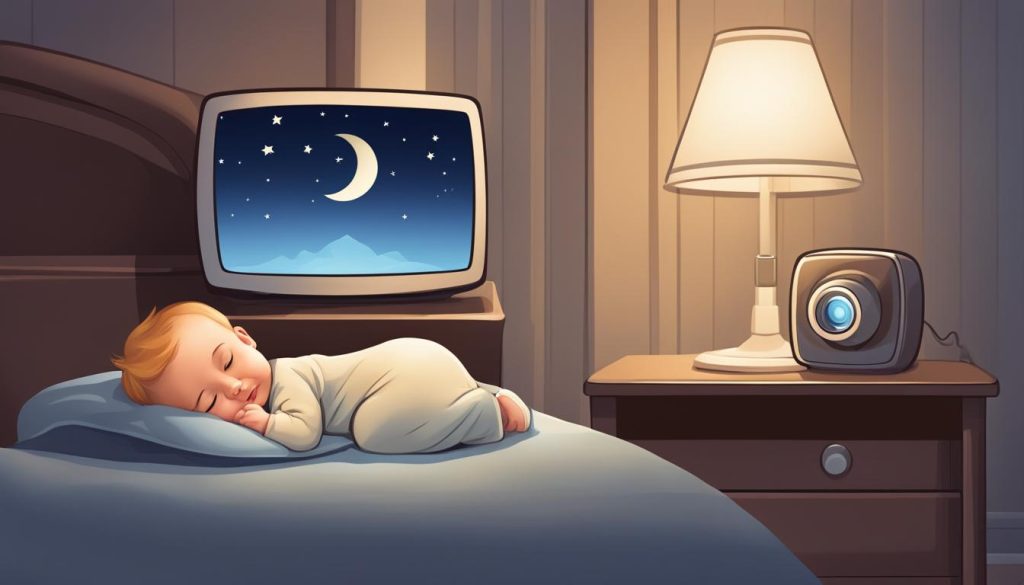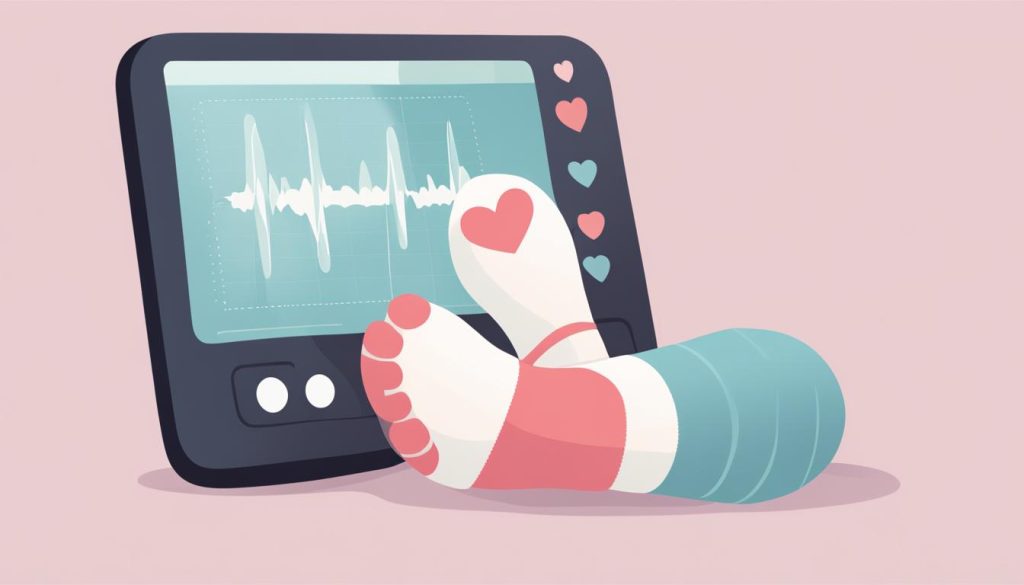As a parent, one of the challenges we face is knowing when to stop using a baby monitor. It’s a decision that requires careful consideration and is influenced by various factors. From the child’s age and ability to communicate to their sleep patterns and our own comfort level, there are several signs to look out for.
So, how do we know when it’s time to say goodbye to the baby monitor? It’s a question many parents ask, and one that doesn’t have a one-size-fits-all answer. Every child is different, and what works for one may not necessarily work for another.
Some indicators that it may be time to stop using a baby monitor include when your child demonstrates clear communication skills, sleeps soundly through the night, and has transitioned to their own room. These are positive signs of your child’s growth and development, and they can help guide your decision.
However, it’s essential to strike a balance between safety and promoting independence. While it’s tempting to rely on a baby monitor for peace of mind, it’s important to remember that it should not be the sole form of supervision. Regularly checking on your child is crucial for their safety.
Ultimately, the decision of when to stop using a baby monitor should be based on your child’s individual needs and your own comfort level. By considering their age, development, and psychological factors, you can make an informed choice that promotes their well-being and independence.
As we delve deeper into this topic, we’ll explore the purpose of a baby monitor, signs that your child has outgrown it, age considerations, psychological factors to consider, safety concerns without a baby monitor, and alternative methods of monitoring your child’s well-being.
The Purpose of a Baby Monitor: Understanding its Benefits and Limitations
As a parent, it’s natural to want to ensure the safety and well-being of your child, even when they are in another room. That’s where a baby monitor comes in handy. The purpose of a baby monitor is to provide parents with peace of mind by allowing them to monitor their child’s sounds and movements. Whether it’s an audio-only, video, or movement monitor, these devices offer a range of benefits.
The benefits of using a baby monitor:
- Constant supervision: With a baby monitor, you can keep a close eye and ear on your child at all times, even when you’re not in the same room.
- Early detection of potential issues: Baby monitors can alert you to any signs of distress or discomfort, allowing you to respond promptly.
- Improved sleep quality: Knowing that you can monitor your child’s safety can help parents relax and get better sleep.
However, it’s important to understand the limitations of a baby monitor. While they are a valuable tool, they should not replace direct supervision or parental instinct. Baby monitors have their boundaries and should be used in conjunction with regular check-ins and interactions with your child.
“The baby monitor provides parents with peace of mind, but it should never be used as a substitute for responsible caregiving,” says Dr. Jane Smith, a pediatrician specializing in child safety. “It’s crucial for parents to remember that no technology can replace their presence and attention.”
By understanding the purpose, benefits, and limitations of a baby monitor, parents can make informed decisions about its usage and ensure their child’s safety and well-being.
Signs Your Child Has Outgrown the Baby Monitor
Knowing when to stop using a baby monitor is an important decision for parents. As your child grows and becomes more independent, there are several signs that indicate they may have outgrown the need for a baby monitor.
Clear Communication
One of the key signs that your child no longer needs a baby monitor is their ability to communicate clearly. When they can speak and express their needs effectively, it becomes easier for them to call out for help if necessary. This increased communication skills indicate that they are becoming more self-reliant and less reliant on constant supervision.
Independent Sleep
If your child is sleeping soundly through the night without any disturbances or issues, it may be a sign that they are ready to sleep without the assistance of a baby monitor. When they can consistently sleep through the night and self-soothe without needing intervention, it shows that they have developed healthy sleep patterns and may no longer require the use of a monitor.
Moving to Their Own Room
Another significant sign that your child has outgrown the baby monitor is when they have transitioned to their own room. Moving to a separate room indicates that they are ready for more independence and can sleep without constant monitoring. However, it’s essential to ensure that the new sleeping environment is safe and secure by taking necessary precautions.
| Signs Your Child Has Outgrown the Baby Monitor | |
|---|---|
| Clear Communication | Your child can communicate effectively and call out for help if needed. |
| Independent Sleep | Your child consistently sleeps through the night and self-soothes without intervention. |
| Moving to Their Own Room | Your child has transitioned to sleeping in their own room and shows readiness for independence. |
Every child is unique, and it’s essential to consider their individual needs and development when deciding to stop using a baby monitor. While these signs can serve as general indicators, parents should also trust their instincts and feel confident in their child’s ability to navigate their sleep environment safely.
Age Considerations for Baby Monitor Usage
When it comes to deciding when to stop using a baby monitor, the child’s age plays an important role. Different age groups have varying needs and levels of supervision. Here are some age considerations to keep in mind:
Infants (0-12 months): For infants, the risk of sudden infant death syndrome (SIDS) is highest during the first year. Using a baby monitor can provide parents with peace of mind during this vulnerable period. However, as the child grows older and develops, their risk decreases, and their need for constant monitoring may diminish.
Older Babies (12-24 months): Older babies may still require monitoring, especially during nap times or nighttime. They may have a more active sleep pattern or be at a stage where they are exploring their environment. A baby monitor can help parents ensure their child’s safety and address any concerns that may arise.
Toddlers (2+ years): As toddlers become more independent and start sleeping through the night without interruptions, the need for a baby monitor may decrease. At this stage, parents can consider gradually transitioning away from using a monitor and focus on promoting the child’s independence and self-soothing skills.
| Age Group | Baby Monitor Usage |
|---|---|
| Infants (0-12 months) | Recommended for safety |
| Older Babies (12-24 months) | May benefit from monitoring |
| Toddlers (2+ years) | Transition to independent sleeping |
It’s important to note that every child is different, and their individual needs and development should be taken into consideration when deciding to stop using a baby monitor. Parents should also trust their instincts and comfort levels when making this decision.
Ensuring a Safe Environment
Regardless of age, it’s crucial to create a safe sleep environment for your child. This includes using age-appropriate cribs, following safe sleep guidelines, and ensuring the absence of hazards. Regularly checking on your child during sleep times can also provide added reassurance.
Psychological Factors to Consider When Stopping Baby Monitor Usage
When deciding to stop using a baby monitor, it’s essential to take into account the psychological factors that may influence this decision. One of the key factors is parental anxiety and its impact on baby monitor usage. Many parents continue to rely on a baby monitor long after their child has outgrown the need for it due to concerns about their safety. However, it’s important to differentiate between rational concerns and irrational fears.
While it’s natural for parents to worry about their child’s well-being, holding onto a baby monitor out of excessive anxiety may hinder the child’s development of independence and self-soothing skills. As children grow older, they need opportunities to explore and learn on their own, gradually becoming more independent. Removing the baby monitor can promote this independence, allowing the child to develop a sense of security and confidence in their abilities.
Parents should also consider the impact of baby monitor usage on their own sleep quality and overall well-being. Constantly monitoring every sound and movement can lead to disrupted sleep and increased stress levels. By gradually reducing dependence on the baby monitor, parents can foster healthier sleep habits for both themselves and their child.
Quotes:
“It’s important for parents to find a balance between ensuring their child’s safety and promoting their independence. Stopping baby monitor usage can be a step towards fostering that independence and allowing the child to develop self-soothing skills.” – Child Development Expert
Table: Promoting Independence with Baby Monitor Usage
| Psychological Factor | Considerations |
|---|---|
| Parental Anxiety | Assess if anxiety is based on rational concerns or irrational fears |
| Child’s Independence | Recognize the importance of promoting independence and self-soothing skills |
| Parent’s Sleep Quality | Consider the impact of constant monitoring on sleep and overall well-being |
By taking into account these psychological factors, parents can make an informed decision about when to stop using a baby monitor. It’s important to evaluate the child’s individual needs, the parents’ comfort level, and the overall impact on both safety and psychological well-being. Finding the right balance will contribute to the child’s growth and development, while also promoting a healthier and less anxious parenting experience.
Safety Concerns Without a Baby Monitor and Alternatives
When considering whether to stop using a baby monitor, it’s important to be aware of the safety concerns that may arise. While baby monitors can provide parents with peace of mind, relying solely on them can create a false sense of security. It’s crucial to understand that a baby monitor is not a substitute for direct supervision and regular check-ins on the child’s well-being.
One of the risks of not using a baby monitor is the potential for interference from other devices. This interference can disrupt the monitor’s signal and prevent parents from receiving crucial alerts. Additionally, a baby monitor may not detect all potential dangers in the child’s environment, such as objects that could pose a choking hazard or areas of the room that may not be clearly visible on the monitor’s screen.
Fortunately, there are alternatives to relying solely on a baby monitor. Some parents opt to use a monitor only during specific stages, such as when the child is transitioning to their own room or during nap times. This allows for a gradual decrease in reliance on the monitor while ensuring the child’s safety during crucial moments. Other parents choose to utilize other monitoring methods, such as audio-only monitors or wearable devices that can alert them to any irregularities in the child’s vital signs.
Ultimately, the decision to stop using a baby monitor should be based on the child’s individual development and the parents’ comfort level. While safety concerns without a baby monitor do exist, it’s essential to find a balance between ensuring the child’s well-being and promoting their independence. Regular check-ins and maintaining a safe environment are vital components of nurturing a child’s growth and security.
FAQ
When should I stop using a baby monitor?
The appropriate age to stop using a baby monitor varies for each child. Infants may benefit from using a monitor for the first 6-12 months due to the higher risk of sudden infant death syndrome (SIDS). Older babies may still require monitoring, while toddlers may be able to sleep through the night without a monitor. The decision should be based on the child’s individual needs and the parents’ comfort level.
What are the signs that my child has outgrown the baby monitor?
Signs that your child has outgrown the baby monitor include their ability to communicate clearly, sleep soundly through the night, and have moved to their own room. Every child is different, so it’s important to consider their individual needs and development.
Are there psychological factors to consider when stopping baby monitor usage?
Yes, parents may continue using a monitor out of anxiety for their child’s safety. It’s important to distinguish between actual risks and irrational fears. Stopping baby monitor usage can also promote the child’s independence and self-soothing skills. Parents should consider their own anxiety levels and the impact on sleep quality.
What are the safety concerns without a baby monitor and are there alternatives?
While baby monitors can provide peace of mind, there are safety concerns to be aware of, such as a false sense of security or interference from other devices. It’s important to ensure the child’s safety even without a monitor by regularly checking on them. There are also alternatives to baby monitors, such as using a baby monitor only during specific stages or relying on other monitoring methods.

